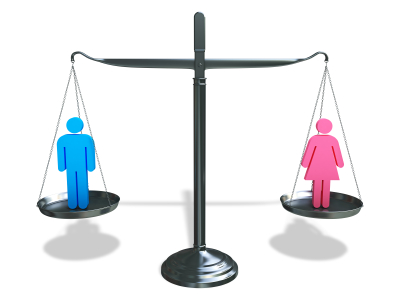Tale of Two Families was very interesting to read. From the very start you can see that Max's family is already in a much more comfortable situation than Byron's. As the story goes by, we can see many examples of how racial segregation can change people's lives, even if they have the same interests and same capacities. Byron was just as intelligent as Max, however he had to work twice as hard in order to get where is is. He needed to have trust on himself and focus on his studies, and because of his effort, he got a scholarship. Max was also talented and bright, but he had a lot more money and could get his education worry free. As this story concludes we see that even today, when our society has gotten a lot better in terms of racial segregation, both Max's and Byron's communities still are segregated. Byron's family sold their houses for very little money, while Max's family got 14 times what they paid for. But that is not their fault. Both families are honest, hard working, and have talented children. Our society is what causes this inequality. It is very heart warming to see that both Max and Byron grew up to be very successful men and work together. This shows that with effort and strength, we can overcome even those obstacles that were already here even before we were born. Of course social and economic background help a lot, but being honest, hard workers and putting effort into what we do, we can get very far, and be very successful.
Sunday, October 28, 2012
Friday, October 19, 2012
Blog Post #9 - Gender Inequality
 What I've learned
about gender inequality and social construction of gender this week has been
somewhat surprising. It has been said that our society does not exactly take
gender inequality seriously. I agree in some aspects. Here in the
What I've learned
about gender inequality and social construction of gender this week has been
somewhat surprising. It has been said that our society does not exactly take
gender inequality seriously. I agree in some aspects. Here in the  Unfortunately that is
not the case in other societies. In my Gender Inequality
Assignment, I interviewed two women from different cultures:
Unfortunately that is
not the case in other societies. In my Gender Inequality
Assignment, I interviewed two women from different cultures:  I
agree with sociologists when they say that gender inequality is not a big
problem in developed societies anymore. In the
I
agree with sociologists when they say that gender inequality is not a big
problem in developed societies anymore. In the Saturday, October 13, 2012
Blog Post #8 - Does Global Inequality Affect America?
 Does global inequality affect
Does global inequality affect  It also
affects us economically, but in other ways.
The money that we spend helping other countries with their inequality
problems could well be spent to feed out poor, shelter our homeless and educate
our children. I am not by any means
saying that helping other nations is wrong.
As I pointed out in the beginning, as one of the most popular and
successful nations today, we are also a symbol of freedom and we should take responsibility
into helping our fellow nations. I am
however, stating that many countries may be satisfied with their situation, and
sometimes
It also
affects us economically, but in other ways.
The money that we spend helping other countries with their inequality
problems could well be spent to feed out poor, shelter our homeless and educate
our children. I am not by any means
saying that helping other nations is wrong.
As I pointed out in the beginning, as one of the most popular and
successful nations today, we are also a symbol of freedom and we should take responsibility
into helping our fellow nations. I am
however, stating that many countries may be satisfied with their situation, and
sometimes
Global
inequality also affects us politically.
The reason why many people choose to come to this country illegally is
because they know that the opportunities in their countries are not equal to
the opportunities here. That affects us,
because it giver politicians excuses to explain their ignorance. For example, immigrants take jobs that many
Americans are not qualified to do, or just don’t want to do. Many politicians take advantage of that and
say that immigrants “steal” jobs, when there is no such thing.
With the popularity of internet and social
networking, global inequality affects us in personal level. As humans, we have empathy towards one another,
and seeing other country’s peoples suffer with inequality hurts us. Global inequality does affect America
Copyright Disclaimer: The pictures posted do not belong to me.
Friday, October 5, 2012
Blog Post #7 - Does Social Class Matter?
Unfortunately (when a sentence starts with
that, you know it ain't gonna be good) social class matters way too much in the
U.S. America
I
have experienced the importance of social class. The most evident examples of such importance
were witnessed by me in the glorified place (which has become more of a social
event than a center for education) we call High School. In high school, social class is pretty much
everything. The girls who wear the most
expensive clothing, or have the most expensive cars, or go to the most
expensive restaurants (none of which are actually paid with their own hard
work, but rather that of her parents) are considered the most popular. The same applies to boys. There is this misconception that money equals
worthiness. It is shameful. And by the way, it is the parents’
fault. Dear American parents, lets start
educating your children instead of buying their fake respect with video games
and expensive crap they don’t need. Video
games will make them stop slamming doors right now, but a good education and
values will save them from having doors slammed at them later.
Subscribe to:
Posts (Atom)



